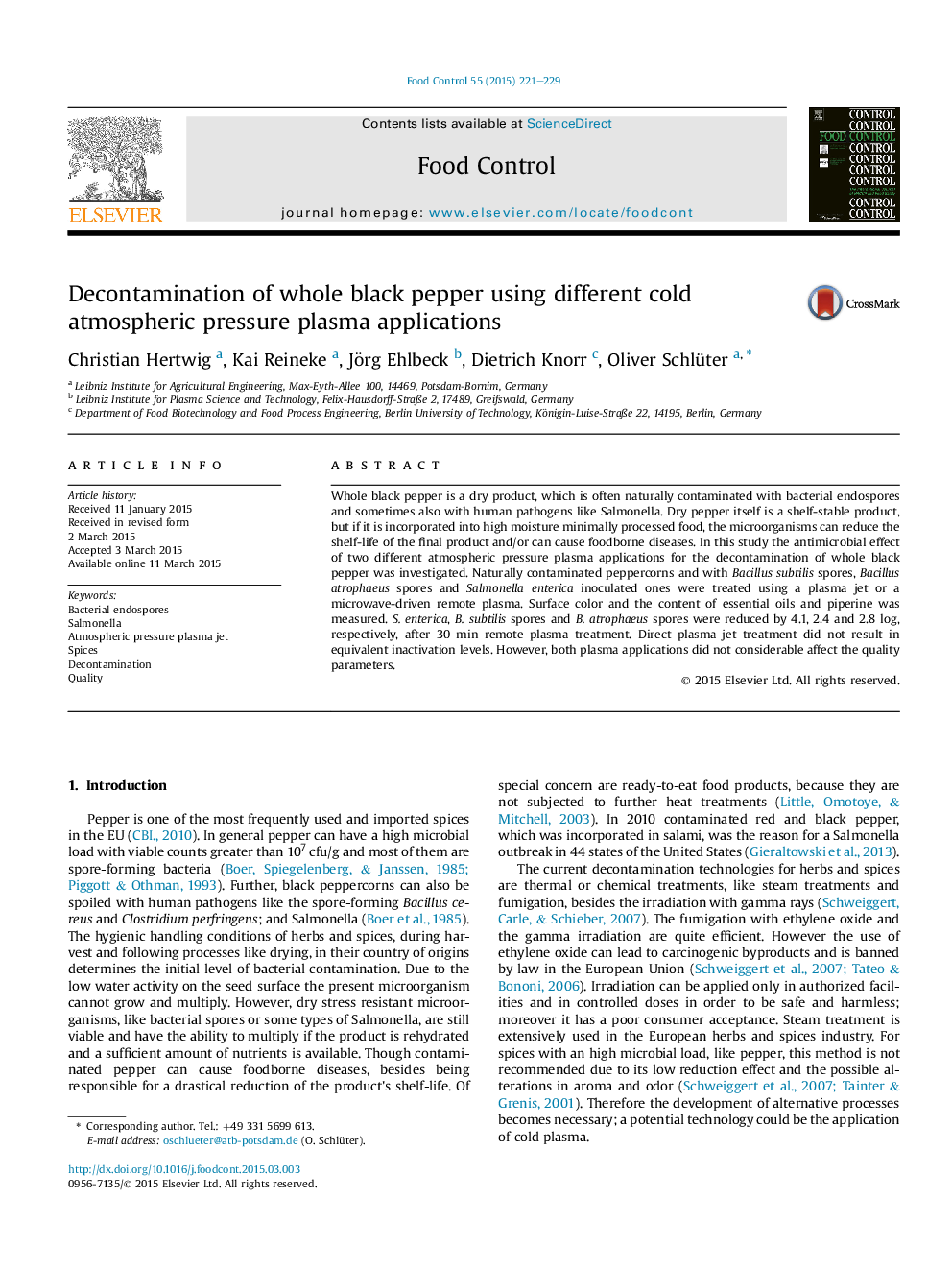| Article ID | Journal | Published Year | Pages | File Type |
|---|---|---|---|---|
| 4559305 | Food Control | 2015 | 9 Pages |
•Two different plasma devices were evaluated regarding their antimicrobial effects.•Remote plasma showed promising results regarding the decontamination of pepper.•Both plasma applications did not considerable affect the pepper quality.•Proper selection of plasma sources is essential to reach the process goal.•Remote plasma offers interesting potential as non-thermal decontamination process.
Whole black pepper is a dry product, which is often naturally contaminated with bacterial endospores and sometimes also with human pathogens like Salmonella. Dry pepper itself is a shelf-stable product, but if it is incorporated into high moisture minimally processed food, the microorganisms can reduce the shelf-life of the final product and/or can cause foodborne diseases. In this study the antimicrobial effect of two different atmospheric pressure plasma applications for the decontamination of whole black pepper was investigated. Naturally contaminated peppercorns and with Bacillus subtilis spores, Bacillus atrophaeus spores and Salmonella enterica inoculated ones were treated using a plasma jet or a microwave-driven remote plasma. Surface color and the content of essential oils and piperine was measured. S. enterica, B. subtilis spores and B. atrophaeus spores were reduced by 4.1, 2.4 and 2.8 log, respectively, after 30 min remote plasma treatment. Direct plasma jet treatment did not result in equivalent inactivation levels. However, both plasma applications did not considerable affect the quality parameters.
